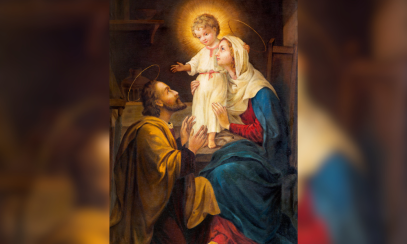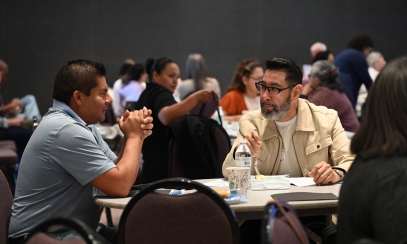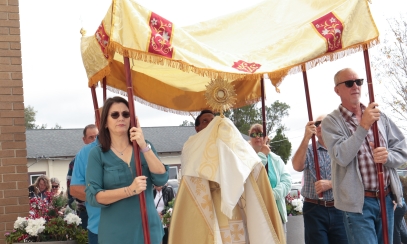
Making a Good Confession
During the season of Lent, we are encouraged to make a good confession in order to prepare our hearts to more generously receive the grace that the Lord has in store for us on Easter.
During the season of Lent, we are encouraged to make a good confession in order to prepare our hearts to more generously receive the grace that the Lord has in store for us on Easter.
What does it mean to make a good confession?
Before answering this question, it may be helpful to explain what confession is. Confession, or the Sacrament of Reconciliation, is precisely that: the concrete manifestation of our reconciliation with God. If we think about the many relationships we have, we can easily recognize our need to reconcile with others whenever we have done something to offend them. It is no different in our relationship with God. The difference, however, is that with God we do not have the same physical experience of hearing that we are forgiven as we do when we apologize to our neighbor... except in confession!
Whenever we go to confession, we do not confess our sins to the priest, we confess our sins to the Lord through the priest. This is not just an extra hoop we have to jump through. The fact that the Lord desires to manifest His mercy in a physical, concrete way speaks to His desire to correspond to our needs. This is why the Word became flesh and dwelt among us. This is why Jesus established the Church as the continuation of His presence. And this is why He gave us the Sacraments as visible signs of that presence.
So, how do we make a good confession? We share our needs with the Lord. We open up our hearts to Him in honesty and self-reflection so as to create space to receive all that He desires to give us. When we share our failures and shortcomings with Him, we receive His mercy and forgiveness. When we share our challenges and sorrows, we receive His love and grace. Understood in this way, going to confession is not about checking off a box, but about bringing our life—our entire life, the good, the bad and the ugly—to Him in order to be reconciled. It is in this Sacrament that we experience the Lord’s pardon and peace, as we hear in the words of absolution, and have the joy of knowing concretely that we have been forgiven.
In order to do this, it is important to prepare. I would suggest spending some time in silent prayer and asking the Lord to show you how He has been working in your daily life to draw you to Himself. Hopefully, more often than not we are allowing ourselves to be drawn by His love, we are actively cooperating with His plan for our lives. But if we are honest with ourselves, we know that there are some times when we resist. This is at the heart of what sin is; resistance to God’s love, or in other words, choosing to love other things over the One who created us in love and sustains us by His love.
Lent provides us with an opportunity to experience the reconciliation that our hearts desire, to be reconciled with God, with ourselves, and with our neighbors. We need this reconciliation in order to withstand the crashing waves of a world so often marred by sin and disorder because, as we know from experience, we cannot do it on our own. The good news is we do not have to! This is why Jesus came into the world, to be that reconciliation for us. And so, I encourage you to open your heart up to Him this Lent and to experience the reconciliation for which He came. In this way, as we approach Easter, our hearts will be open to receive the grace of the Resurrection, His victory over sin and death.



